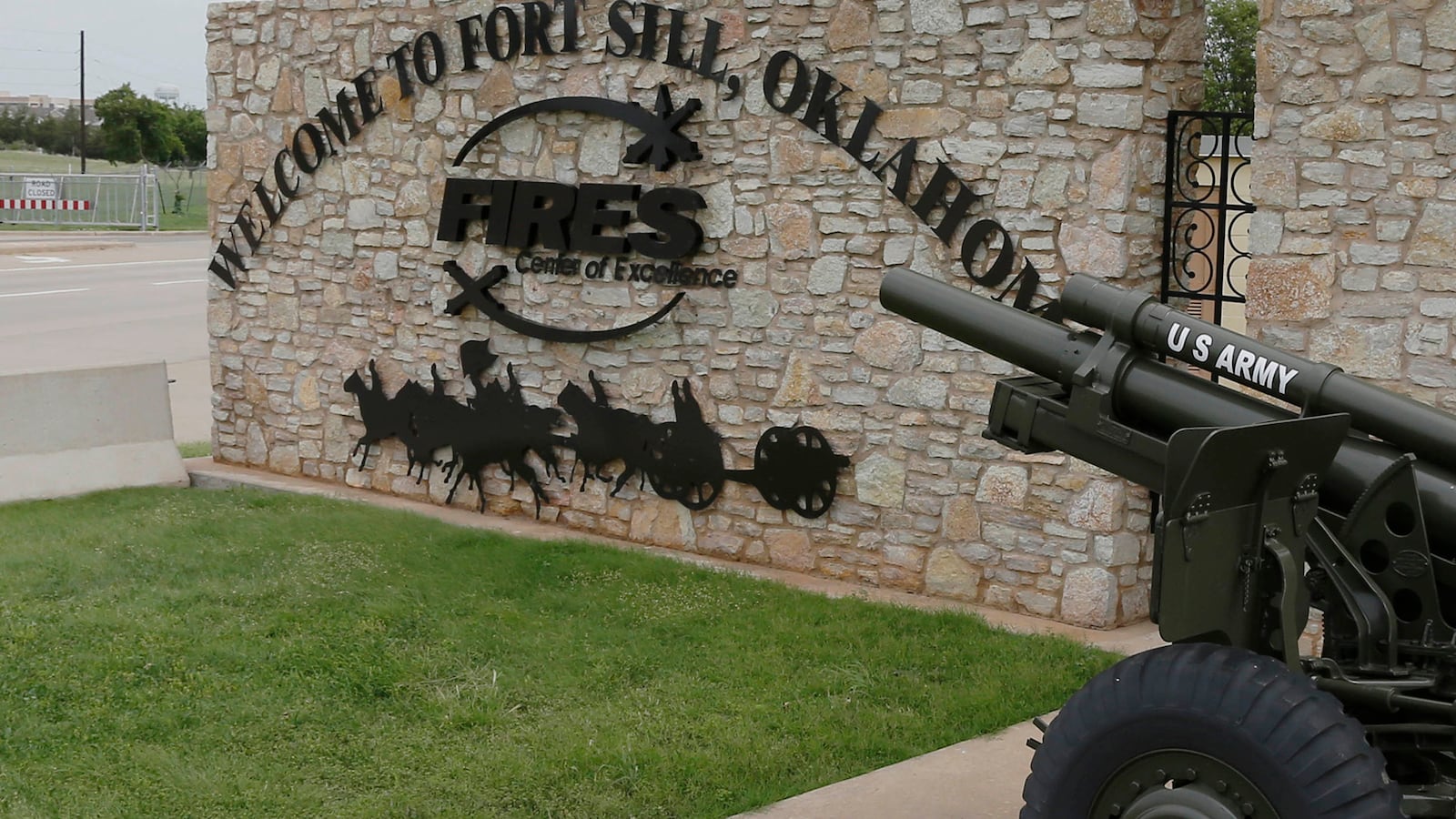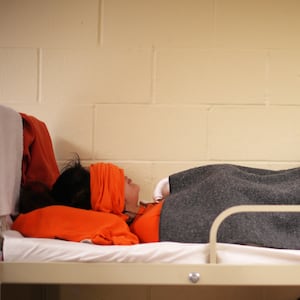The Trump administration’s plan to house 1,400 undocumented migrant children on an Oklahoma military base that was once used to detain Japanese Americans during World War II has outraged civil rights organizations that advocate for former internees, as well as a U.S. congresswoman who was herself born in an internment camp.
Fort Sill has served as an Army base since 1869, and was one of nearly four dozen facilities used to hold 120,000 Japanese Americans during the war. According to Denshō, a nonprofit that collects oral histories and documents regarding the internment camps, roughly 700 Japanese Americans were held at the base, as well as a handful of German prisoners of war.
“The Trump administration’s decision to use a military base that once housed Japanese Americans during internment is fundamentally wrong and tone-deaf,” Rep. Doris Matsui, a California Democrat who was born in the Poston War Relocation Center internment camp in Poston, Arizona, told The Daily Beast.
Matsui, whose late husband and predecessor Bob Matsui was also held in an internment camp during the war, told The Daily Beast that the Department of Health and Human Services’ use of Fort Sill to hold undocumented minors ignores “a painful moment of our past.”
“The internment of over a hundred thousand Japanese Americans is a stain on our nation’s history,” Matsui said. “With this recent action, I fear that the Trump administration is ignoring a painful moment of our past.”
Although Fort Sill has been used as a temporary facility to house migrant children before—including by the Obama administration—advocates for communities that were interned during World War II see too much similarity between the Trump administration’s treatment of Central American migrants and the federal government’s detention of Japanese Americans.
“Fort Sill is a place layered in trauma,” said Tom Ikeda, executive director at Denshō, who pointed out that one inmate, Kanesaburo Oshima, was shot and killed trying to escape from the camp in 1942. “We need to stay vigilant and we need to be showing up at these places in protest. No one showed up for Japanese Americans during WWII, but we can and we must break that pattern now.”
Ikeda called the detention of migrant children and families part of a larger tapestry of America’s troubled history of detaining racial and ethnic minorities, noting that Jakelin Caal, one of the six children who have died in Border Patrol custody in less than a year, was held not far from another former Japanese American internment camp in New Mexico.
“The Dilley, Texas, ‘family residential center,’ the largest family detention site in the country, is only 40 miles away from the former Crystal City concentration camp,” Ikeda said. “This is an important reminder that U.S. systems of incarceration, past and present, are often more vast and hidden than we realize.”
“Sites like this need to be permanently closed, not recycled to inflict more harm,” Ikeda said.
The decision by HHS to designate Fort Sill as a “temporary emergency influx shelter” comes as the department has asked for almost $3 billion in emergency appropriations to house a record number of undocumented minors. Last week, U.S. Customs and Border Protection released data showing that apprehensions of unaccompanied minors at the southern border has skyrocketed in 2019, rising more than 80 percent from May 2018 to May 2019.
“That our country is once again incarcerating children in facilities used previously to incarcerate Japanese Americans is like a gut punch to the Japanese American community, many of whom continue to feel the effects of the inter-generational trauma inflicted from their families' incarceration experiences,” David Inoue, executive director of the Japanese American Citizens League, told The Daily Beast. “The damage being done to these children is immoral.”
President Donald Trump has expressed mixed feelings about the detention of Japanese Americans during World War II in the past. In an interview with Time magazine during the 2016 presidential election, Trump told a reporter that while “I certainly hate the concept” of internment, he “would have had to be there at the time to give you a proper answer” on whether he would have supported interning Japanese Americans.
“It’s a tough thing. It’s tough,” Trump said at the time. “But, you know, war is tough. And winning is tough. We don’t win anymore. We don’t win wars anymore. We don’t win wars anymore. We’re not a strong country anymore. We’re just so off.”
People of Japanese descent were first detained following Japan’s attack on Pearl Harbor, when President Franklin Roosevelt signed Executive Order 9066, which authorized the U.S. military to detain Japanese citizens and Japanese Americans as “protection against espionage and against sabotage.” Those interned lost their homes, businesses, and were often held in cramped facilities under armed guard. The Supreme Court upheld the detentions as constitutional in the landmark 1944 case Korematsu v. United States, a decision that was not officially rejected by the court until 2018.
People of Japanese descent who were interned were eventually granted reparations by the federal government in with the passage of the Civil Liberties Act of 1988, which called the internments an act of “racial prejudice, war hysteria and a failure of political leadership.”






